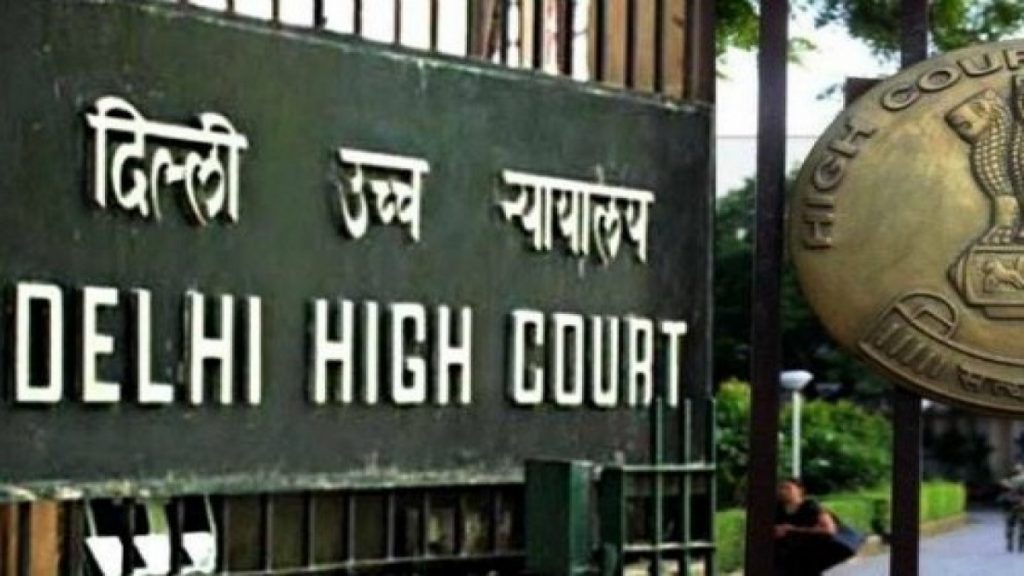New Delhi: The Centre Thursday told the Delhi High Court it has set up an appellate mechanism to deal with grievances of the users arising from the decisions of social media platforms.
“New notification has come. Grievance appellate mechanism has been set up and a committee has been formed. An appeal from the grievance officer (of social media platforms) will now go before the grievance appellate committee, which has been formed January 27,” said the central government lawyer before Justice Prateek Jalan.
The court was hearing a lawsuit by Abhijit Iyer Mitra seeking restoration of his Twitter account.
The court was informed by the parties the twitter account as well as the tweet in question has been reinstated and the counsel for the plaintiff subsequently sought permission from the court to withdraw the lawsuit.
The lawsuit is dismissed as withdrawn and the plaintiff can re-agitate the questions of law in future, if necessary, ordered the court.
Iyer had moved the high court last year, claiming after his tweet in relation to the bail granted by the Supreme Court to Alt News co-founder Mohammed Zubair in a criminal case, Twitter “unilaterally banned his twitter account thereby making it completely inaccessible for the former to engage with his 1.5 lac followers”.
In December last year, the Centre had told the high court, which was hearing another batch of pleas concerning the suspension and deletion of accounts of several social media users, including Twitter users, that relevant amendments have been made in the Information Technology Rules to introduce appellate panels to redress grievances that users may have against the decisions of social media platforms like Twitter and Facebook on hosting contentious content.
Rule 3A was inserted on “Appeal to Grievance Appellate Committee(s)”, a gazette notification issued by the Ministry of Electronics and Information Technology (MeitY) said last year.
January 27, the Centre notified the establishment of three “Grievance Appellate Committees” to address user complaints against social media and other internet-based platforms.
According to the notification, each of the three GACs (grievances appellate committees) would have a chairperson, two whole-time members from different government entities and retired senior executives from the industry for a term of three years from the date of assumption of office.
The appellate committees will be able to review content moderation and other decisions by social media companies.
“Any person aggrieved by a decision of the grievance officer may prefer an appeal to the grievance appellate committee within a period of thirty days from the date of receipt of communication from the grievance officer,” the notification introducing the committees said.
The grievance appellate panel will deal with such appeal “expeditiously” and make an endeavour to resolve the appeal finally within 30 calendar days from the date of receipt of the appeal, it added.
The government had, in February 2021, notified IT rules that provided for social media platforms to appoint a grievance officer. Users at the first stage flag complaints against content or another user to the grievance officer.
In its affidavit filed in one of the cases against the suspension of Twitter accounts, the Centre has earlier said an individual’s liberty and freedom cannot be “waylaid or jettisoned in the slipstream of social and technological advancement” and social media platforms must respect the fundamental rights of the citizens and conform to the Constitution of India.
It said social media platforms should not take down the account itself or completely suspend it in all cases as complete de-platforming is against the spirit of Articles 14, 19, and 21 of the Constitution of India.
Noting that it is the custodian of the users’ fundamental rights in cyberspace, the Centre has said a social media account can be suspended or de-platformed only in cases such as in the interest of the sovereignty, security, and integrity of India, friendly relations with foreign States or public order or pursuant to a court order or if the content is grossly unlawful such as sexual abuse material, etc.
PTI
